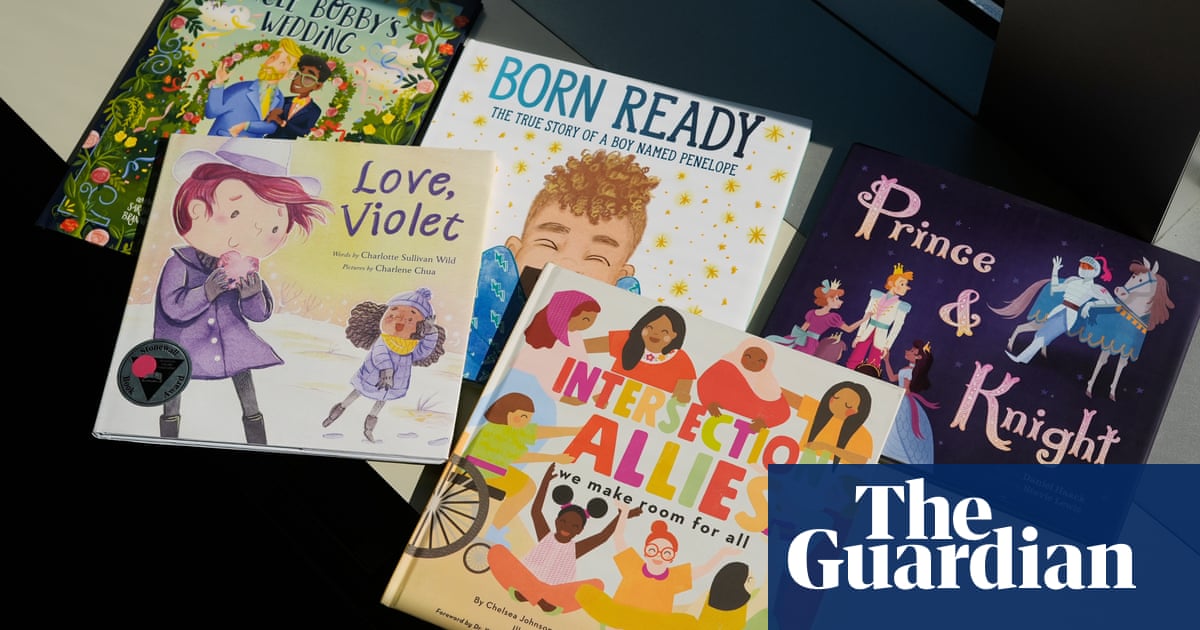TheUS supreme courtis considering on Tuesday an attempt by Christian and Muslim parents inMarylandto keep their elementary schoolchildren out of certain classes when storybooks with LGBTQ+ characters are read in the latest case involving the intersection of religion and LGBTQ+ rights.
The justices are hearing arguments in an appeal by parents with children in public schools in Montgomery county, located just outside Washington, after lower courts declined to order the local school district to let children opt out when these books are read.
The plaintiffs – including Muslim, Roman Catholic and Ukrainian Orthodox parents – contend that the school board’s policy of prohibiting opt-outs violates the US constitution’s first amendment protections for free exercise of religion.
The supreme court, which has a 6-3 conservative majority, has steadily expanded the rights of religious people in recent years, including in cases involvingLGBTQ+people. For instance, the court in 2023 ruled that certain businesses have a right under the first amendment’s free speech protections to refuse to provide services for same-sex weddings.
The Montgomery country district in 2022 approved a handful of storybooks that feature lesbian, gay, bisexual and transgender characters as part of its English language arts curriculum in order to better represent the diversity of families in the county, the district said in court filings.
The storybooks do not instruct about gender or sexuality and are available for teachers to use “alongside the many books already in the curriculum that feature heterosexual characters in traditional gender roles”, the district said.
Opt-outs are still allowed by the district for sex education units of health classes.
As the district found the number of requests to excuse students from classes in which these storybooks were read logistically unworkable, it announced in 2023 a policy barring opt-outs from instruction using the storybooks.
Represented by the Becket Fund for Religious Liberty conservative legal group, the parents who have sued include Tamer Mahmoud, Enas Barakat, Chris Persak, Melissa Persak, Jeff Roman and Svitlana Roman, along with an organization called Kids First that seeks opt-out rights in Montgomery county.
The plaintiffs said in their lawsuit that the storybooks “promote one-sided transgender ideology, encourage gender transitioning and focus excessively on romantic infatuation – with no parental notification or opportunity to opt out”.
The fourth US circuit court of appeals, based in Richmond, Virginia, in 2024 denied their request for a preliminary injunction, saying that at that early stage of the case there was no evidence that the storybooks are “being implemented in a way that directly or indirectly coerces the parents or their children to believe or act contrary to their religious faith”.
The plaintiffs told the supreme court that the fourth circuit’s decision undermined the right of parents to “protect their children’s innocence and direct their religious upbringing”.
Sign up toHeadlines US
Get the most important US headlines and highlights emailed direct to you every morning
after newsletter promotion
The district emphasized in a brief to the court that no parent or child is coerced to alter their religious convictions or practices, and that mere exposure to content that parents find religiously objectionable does not violate the first amendment.
The Freedom fromReligionFoundation secularism advocacy group in a filing to the supreme court supporting the school board said: “Parents should not have the constitutional right to micromanage their children’s education to ensure that all secular education materials conform with their personal religious beliefs.”
Such a rule would be boundless because “almost any book or idea – however commonplace or innocent – likely contradicts some religious ideals,” the group said.
In a brief backing the parents in the case, a group of religious liberty scholars wrote that the supreme court should correct the “widespread failure of the lower courts to understand the burden on parental religious rights that can result from mandatory school instruction on highly fraught topics”.
The supreme court is expected to rule by the end of June. The justices are poised to decide multiple cases involving religious rights this term. Next week, it will hear a major case involving an attempt to establish in Oklahoma the nation’s first taxpayer-funded religious charter school.
